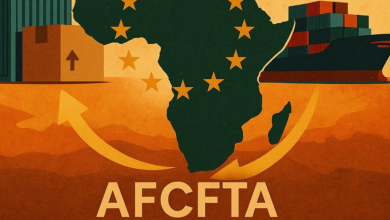Traders in Simiyu call for tax assessment reforms to combat corruption

SIMIYU: TRADERS in Simiyu Region have proposed significant reforms to the tax assessment system employed by the Tanzania Revenue Authority (TRA), arguing that the current system encourages corruption and bribery between traders and TRA officers, leading to tax evasion.
Speaking during a meeting with the Presidential Tax Reform Commission, businesspeople voiced their concerns about the existing system, stating that improvements would encourage traders to pay taxes voluntarily.
They explained that the current individual tax assessment process forces many traders to seek ways to minimise their tax liabilities.
“In this system, each trader is assessed individually, prompting negotiations with TRA officers to lower tax obligations, which results in revenue loss,” said Mr Emmanuel Mongo.
He added that some traders falsify their business data or omit information entirely due to the system’s loopholes.
The traders called for a more transparent and equitable system, suggesting a standardised tax schedule based on business types.
“Traders selling similar goods should know exactly how much they need to pay annually. This approach would eliminate bribery, tax evasion and fraud,” said Guga Inuka.
Mr Davis Mateko, Chairman of the Business Community in Busega District, raised concerns about the fairness of the current appeals process.
“If a trader feels unfairly assessed, they must appeal to the same TRA officials, which is unjust. An independent body separate from TRA should handle these appeals,” he proposed.
Mr Mateko explained that such a body would ensure impartial decisions based on facts, benefitting both traders and TRA.
ALSO READ: Double Taxation Agreements intricacies (Part 2)
Despite their concerns, the traders commended the government for improving TRA’s efficiency and customer relations.
“Previously, TRA relied on force, causing businesses to close or traders to flee. Now, officials use persuasive language, offer negotiations and even grant extensions for late payments,” noted Juma Mayangu.
On the issue of VAT, Joseph Mtandika, TRA’s Manager for Simiyu Region, pointed out disparities that disadvantage traders. “Some traders selling the same goods are VAT-registered while others are not, leading to unfair competition. The system must ensure all traders within a group pay VAT to create uniformity,” he said.
Prof Florens Luoga, a Commission member, praised President Samia Suluhu Hassan for prioritising stakeholder input in tax matters, while Prof Mussa Assad assured traders that their suggestions would be conveyed to the President.
Chairperson Maimuna Tarish encouraged stakeholders to continue submitting feedback via phone and email, highlighting the government’s commitment to creating a more inclusive and equitable tax system.





